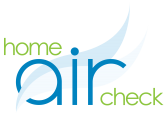
In today’s world, with increasing concerns about air quality and pollution, it’s vital to take steps to ensure the air we breathe is as clean as possible. One effective way to achieve this is by using HEPA filtration. But what exactly is a HEPA filter, and why is it so important to use one? HEPA, an acronym for High Efficiency Particulate Air, refers to a type of air filter capable of trapping super tiny particles that other filters might miss. These particles, including dust, pollen, pet dander, mold spores, and even bacteria and viruses, can pose significant health risks when inhaled.
So, what sets HEPA filters apart? It’s all in the numbers. To qualify as a true HEPA filter, it must meet strict standards set by the United States Department of Energy. These standards mandate that a HEPA filter must capture at least 99.97% of particles, as small as 0.3 microns in size, from the air. To put that into perspective, a single micron is about 1/25,000th of an inch, making these filters exceptionally effective at removing even the tiniest airborne contaminants.
Did you know? HEPA filtration is effective for removal of a large portion of air pollution (i.e. particulates) but not for removal of chemicals/gasses/VOCs.
The importance of using HEPA filters cannot be overstated, especially in spaces where air quality is a concern. Here are a few reasons why they are vital to healthier indoor air:
- Allergen Reduction: For those prone to allergies, HEPA filters provide much-needed relief by trapping allergens like pollen, dust mites, and pet dander, thus alleviating symptoms such as sneezing, coughing, and itchy eyes.
- Respiratory Health: Clean air is essential for maintaining healthy lungs. HEPA filters help remove harmful particles that can aggravate respiratory conditions such as asthma, bronchitis, and COPD, allowing individuals to breathe easier and reduce the risk of exacerbations.
- Protection Against Viruses and Bacteria: In light of recent global health concerns, the ability of HEPA filters to capture airborne viruses and bacteria has become increasingly relevant. While they cannot eliminate all risks, using HEPA filtration can help reduce the transmission of infectious diseases within indoor spaces.
- Cleaner Environment: Whether it’s your home, office, or any indoor space, investing in HEPA filtration promotes a cleaner and healthier environment for everyone. By removing pollutants from the air, these filters contribute to overall well-being and comfort.
HEPA filters represent a significant advancement in indoor air quality technology, offering unparalleled efficiency in capturing airborne contaminants. Whether you’re seeking relief from allergies, protecting your respiratory health, or simply aiming for cleaner air, incorporating certified HEPA filtration into your environment is a proactive step towards a healthier lifestyle. So, when it comes to breathing easier and living better, investing in HEPA, is investing in your health.

